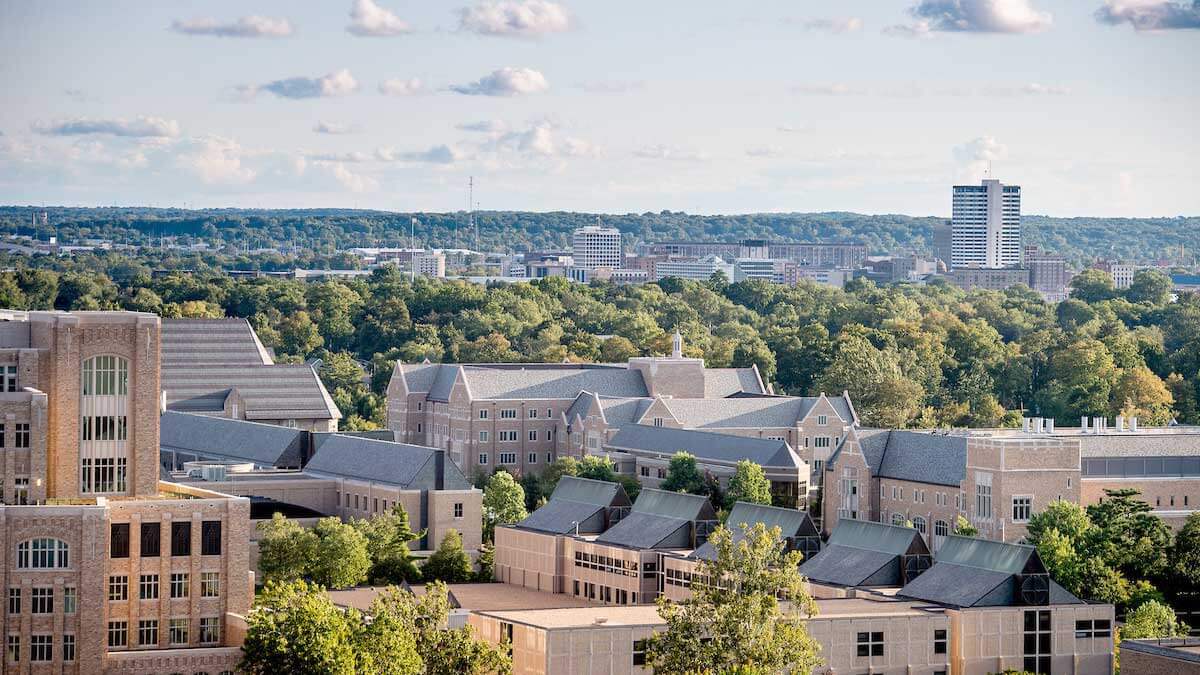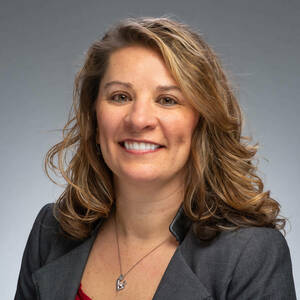Notre Dame-led coalition aims to address health disparities in the South Bend-Elkhart community

The University of Notre Dame has convened a coalition of community health workers, community navigators and certified addiction peer recovery coaches to advance research, provide opportunities for student education and improve public health in the South Bend-Elkhart community.
The Michiana Community Health Coalition (MCHC) meets once per month to share knowledge and resources and pursue solutions to issues that commonly contribute to disparate health outcomes in the U.S., from lack of access to quality, affordable housing and transportation to poverty, educational inequality and mental health.
The group discusses issues and learns from each other as well as guests, including community experts and Notre Dame researchers. These conversations are also invaluable for researchers to truly understand on-the-ground issues and collaborate with community partners.
As trusted members of the community, coalition members serve as liaisons between the community and local health systems, helping to facilitate access to care and improve the quality and cultural competency of individual organizations and providers.
“You’re swimming across the river and swimming and swimming, and the health coalition comes along and says, ‘Here’s your boat and paddle’ and helps you get across.”
“These individuals are working on the front line of health, listening and building trust within our community to improve our system of care. Their work is critical in understanding the needs that exist and in helping develop solutions,” said Jessica Brookshire, senior program director in the Office of Clinical Partnerships at Notre Dame.
Brookshire, along with Jennifer Lefever, managing director of the William J. Shaw Center for Children and Families, and Jill Pentimonti, director of research advancement and Federal Relations, organized the group in December 2021. Initially, it started with four organizations — Beacon Health System, Saint Joseph Health System, St. Joseph County Department of Health and Oaklawn — that had begun using community health workers and certified addiction peer recovery coaches. These organizations recognized the importance of such work and the opportunity to learn from those on the front lines of community health. The coalition now counts more than 20 organizations from across St. Joseph, Elkhart and Marshall counties in northern Indiana.

According to Brookshire, this growth speaks to the needs that exist. From the perspective of health organizations, it also speaks to the importance of outreach, cultural competency and health literacy, as well as the need to engage with and learn from individuals who are trusted members of the community.
Already, the coalition has developed a network to improve access to care and resources across all segments of the community. This includes things such as housing, mental health care, food programs, advance care planning and chronic disease management.
Vanessa Coutee is a community health worker with Beacon Health System in South Bend, where she focuses on COVID issues and COVID vaccination. Participating in the coalition, she said, has provided her with the knowledge to better serve her clients.
“Before I started attending the coalition it was like, ‘Oh, I wonder what organization can help us do this?’ But once I started attending the health coalition, it was like bridging the gap,” she said.
In that sense, she compared the organization to a lifeboat.
“You’re swimming across the river and swimming and swimming,” she said, “and the health coalition comes along and says, ‘Here’s your boat and paddle’ and helps you get across.”
She said she spends less time now tracking down resources and more time engaging directly with her clients.
“Having so much information so accessible is a big thing for us,” she said. “It makes our job so much easier and allows us to focus on more important things rather than, ‘Oh, I’ve got to find resources for housing or this and that.’ If you already have it you can say, ‘OK, what else can I help you with?’”
The coalition is funded by the Lucy Family Institute for Data and Society, which recognized the potential of the group to establish collaborations within and between community partners. In fact, after conversations during MCHC meetings, the Lucy Family Institute, the Notre Dame Lead Innovation Team and various community partners proposed and were awarded a grant from the National Science Foundation to develop new tests and technologies to reduce childhood lead exposure in the South Bend-Elkhart region. Beyond the grant, the Center for Civic Innovation and John J. Reilly Center for Science, Technology and Values has collaborated with the MCHC on student projects to support the coalition and benchmark work across the United States.
Ultimately, the group plans to work with a variety of campus and community partners to engage in conversations to improve the health and well-being of the community, including securing funding sources that connect needs with resources.
Originally published by at news.nd.edu on May 26, 2023.
Latest Research
- From reaction to resolution: The future of allergy treatmentTwelve-year-old Lauren Eglite was thrilled to attend a Notre Dame football game with her father, Erik, in 2017, even though her acute peanut allergy demands constant vigilance. She was even more excited when the stadium’s brand-new video board aired an NBC Fighting…
- New Study Highlights Mother-Child Link for Anemia in The GambiaAnemia is a "silent epidemic." It affects nearly 2 billion people globally, yet many people ignore its symptoms. Typically caused by the consumption of iron-deficient foods, anemia develops gradually. Its symptoms—such as fatigue, weakness, and shortness of breath—are frequently dismissed or misattributed.
- Megan McDermott joins ND–IBM Tech Ethics Lab as new Notre Dame directorThe Notre Dame–IBM Technology Ethics Lab, a critical component of the Institute for Ethics and the Common Good (ECG) and the Notre…
- Jenkins Center for Virtue Ethics receives grant to advance love-based ethical frameworkThe University of Notre Dame has received a $10 million grant from the John Templeton Foundation to support a project titled Love and Social Transformation: Empowering Scholars and Social Innovators to Develop the Love Ethic.
- ND-GAIN releases latest Country Index updateThe lastest update to the University of Notre Dame’s Global Adaptation Initiative's (ND-GAIN) Country Index is now live. The ND-GAIN team will release a second Country Index update in late Fall, which includes…
- In sub-Saharan Africa, 1 in 6 cancer medications found to be defectiveSerious quality defects were found in a significant number of cancer medications from sub-Saharan Africa, according to new research from the University of Notre Dame.












